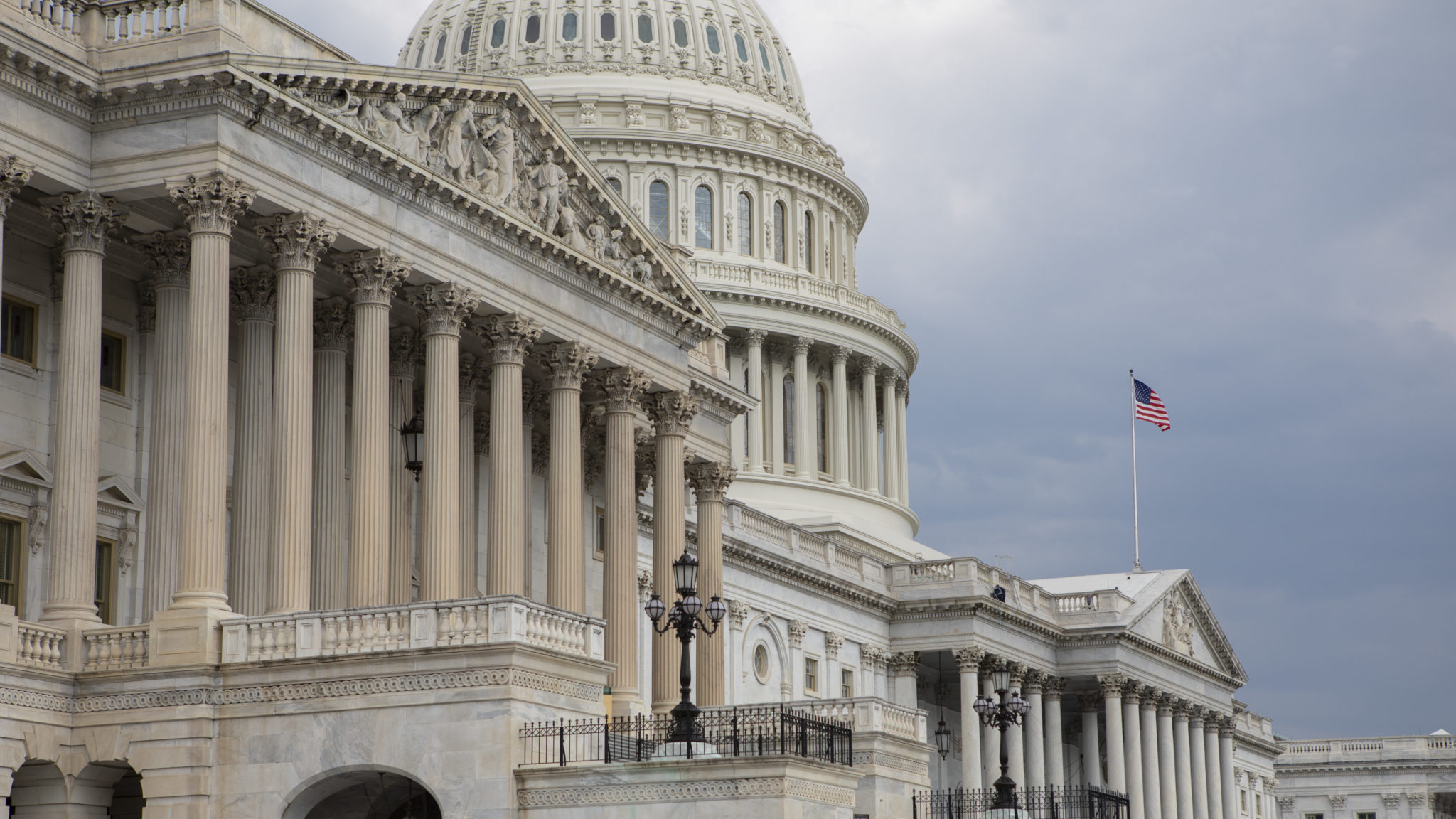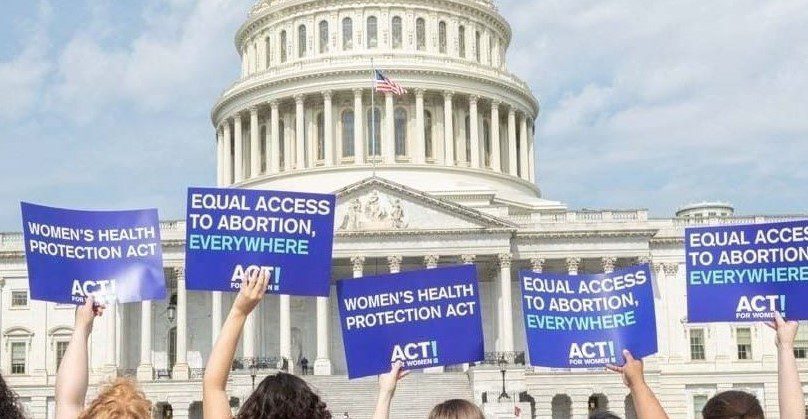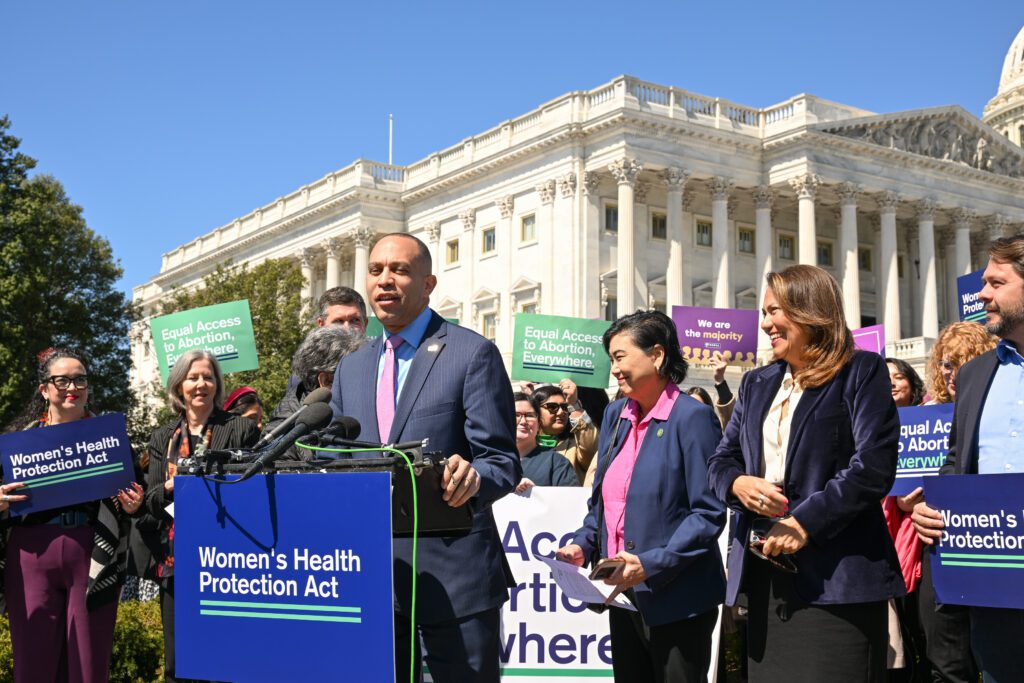Efforts to Advance Women’s Health Protection Act Continue After Bill Falls Short of Passage in Historic Senate Vote
The federal bill to protect the right to access abortion in every state did not achieve the 60 votes needed to overcome the filibuster.

Today, the U.S. Senate voted on the Women’s Health Protection Act (WHPA) in the first-ever Senate vote on proactive legislation to enshrine the right to abortion in federal law. The bill—which is supported by a majority of voters in the U.S and was passed by the U.S. House in September—did not receive the 60 votes needed to overcome the filibuster.
WHPA would protect abortion access by creating a statutory right for health care providers to provide, and a corresponding right for their patients to receive, abortion care—free from restrictions and bans.
Thank your Senators if they voted yes.
The Senate vote came as abortion rights in the U.S. are at greater risk than ever. Anti-abortion lawmakers have introduced hundreds of bills restricting and banning abortion care and the U.S. Supreme Court is considering Mississippi’s request to overturn Roe v. Wade and take away the constitutional right to abortion.
“Many Senators answered the call today to protect abortion rights,” said Nancy Northup, President & CEO of the Center for Reproductive Rights, in a statement. “We are undaunted that we fell just short of the necessary votes today. It was a historic vote, marking the first time the Senate has ever voted to enshrine the right to abortion in federal law. We thank Leader Schumer—and all 46 Senators who voted for the Women’s Health Protection Act—for siding with the vast majority of Americans who want this right protected. One in four women in the United States makes the decision to end a pregnancy. A vote against this bill is a vote against the fundamental right to control one’s own body and future. WHPA may not have passed today, but the groundswell behind it will continue to grow until it becomes law.”
While the bill did not overcome the filibuster, the vote demonstrates that a strong contingent of Senators is committed to protecting the fundamental right to abortion in the U.S., a right currently being denied in the state of Texas and at risk of being taken away in the case currently before the U.S. Supreme Court.
The WHPA coalition—of which the Center for Reproductive Rights is a member—will continue to work to advance WHPA this Congress.
The U.S. House of Representatives passed WHPA on September 24, 2021, marking the first time in history that the House has ever passed legislation specifically designed to protect the right to abortion access nationwide.
Senators Speak in Favor of WHPA
Prior to the vote, Senators spoke in favor of WHPA.
- “Congress must codify into law what most Americans believe: that abortion is a fundamental right and that women’s decisions over women’s health care belong to women.”— Senate Majority Leader Chuck Schumer (D-NY)
- “The vast majority of Americans want a country where the very personal individual decision about pregnancy is up to the individual…That is exactly what the Women’s Health Protection Act would do.”—Senator Patty Murray (D-WA)
- “The reality is for millions of Americans, their futures, in some cases their lives depend on accessible abortion care and the implications and ramifications affect men as well as women, families as well as moms.”—Senator Richard Blumenthal (D-CT)
- “I support taking acting today to pass the Women’s Health Protection Act and ensure every woman has the right to access safe abortion care throughout the United States, no matter where she lives, without unwarranted, unnecessary political interference.”—Senator Tammy Baldwin (D-WI)
Vote Comes at a Critical Moment for Abortion Rights in the U.S.
The WHPA vote comes on the eve of March 1, which will mark six months since Texas’s S.B. 8—the country’s most restrictive in effect abortion ban—was implemented, ending most access in the state. The Texas law prohibits abortion after about six weeks of pregnancy and incentivizes private individuals to sue anyone who provides abortion care or helps someone get care in the state.
The law has rendered the right to abortion effectively meaningless in Texas, with patients being turned away in droves and prevented from accessing time-sensitive abortion care. The ban is forcing most patients to travel out of state or carry pregnancies against their will, a gross violation of their human rights.
The situation in Texas is an indication of what could happen in states across the country if the U.S. Supreme Court weakens or overturns the right to abortion in a Center case currently before the Court. The case, Dobbs v. Jackson Women’s Health Organization—which challenges Mississippi’s pre-viability abortion ban—presents a direct challenge to Roe v. Wade and could shape the future of abortion access in the U.S.
About the Women’s Health Protection Act
The Women’s Health Protection Act creates a new legal protection for the right to provide and access abortion care, free from medically unnecessary restrictions and bans on abortion, including forced waiting periods, biased counseling, and pre-viability bans like the one in Texas.
A national representative poll, conducted by Hart Research in 2021, found that 61% of voters support passage of a national law that would protect the constitutional right to access abortion by creating a nationwide safeguard against bans and medically unnecessary restrictions on abortion. The Women’s Health Protection Act would accomplish that.
The Women’s Health Protection Act is Supported by a Broad Coalition
The Center is part of a broad coalition of more than 100 organizations spearheading the effort to build support for the Women’s Health Protection Act. The coalition—made up of organizations committed to sexual and reproductive health, rights, and justice—has been building support for WHPA for nearly a decade.
In September 2021, the Biden-Harris Administration issued a Statement of Administration Policy supporting passage of WHPA in the House, stating, “In the wake of Texas’ unprecedented attack, it has never been more important to codify this constitutional right and to strengthen health care access for all women, regardless of where they live.”
Read more:


